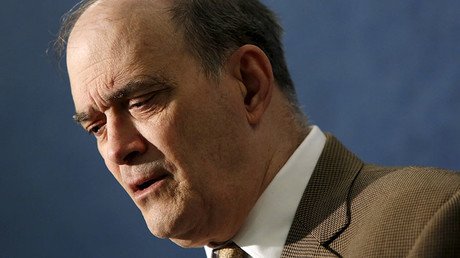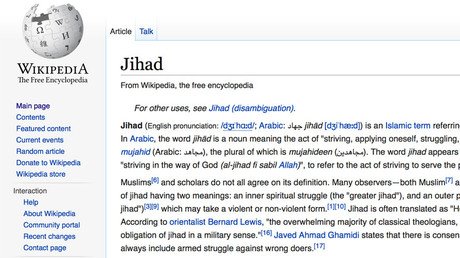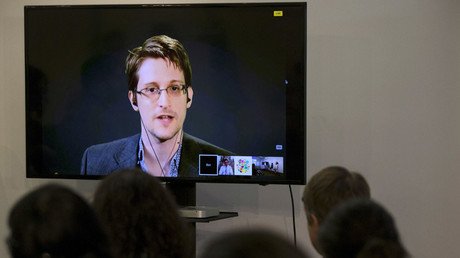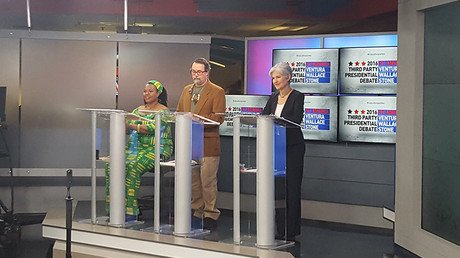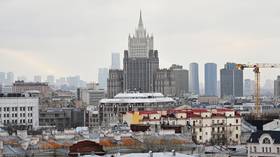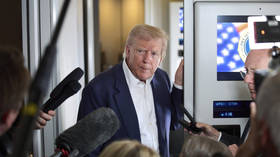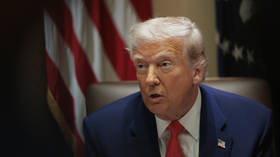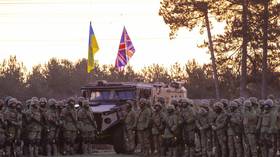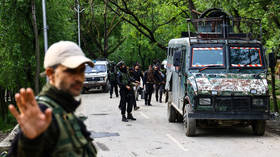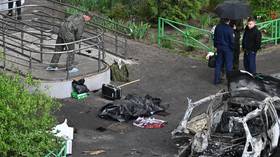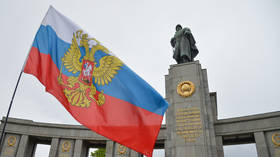‘If we can’t have faith in press, we’ve lost’: Snowden on failing journalism
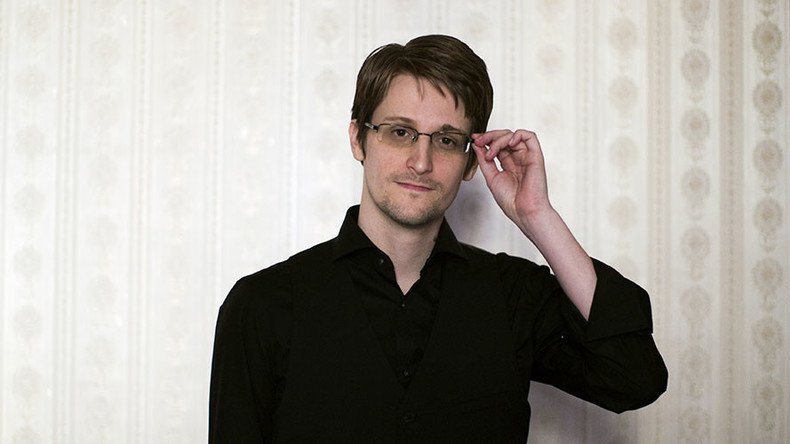
Journalism as a weapon has never been stronger, but has never been less willing to serve the public good, says whistleblower Edward Snowden. The former NSA contractor has called for a reassessment of the public’s relationship to the media.
He outlines his views on the present state of journalism and the increasing role that those in power play in controlling it in an interview he gave to the Columbia Journalism Review.
“One of the most challenging things about the changing nature of the public’s relationship to media and the government’s relationship to media is that media has never been stronger than it is now,” Snowden says. “At the same time, the press is less willing to use that sort of power and influence because of its increasing commercialization.”
Part of the reason is capitalistic greed and the 24-hour news cycle, according to Snowden. There is a conveyor belt of information that is aimed more at competition and staying afloat than at questioning the official line or writing a story that would set a source apart from competing outlets.
“One example of this is writing counter-narratives to somebody’s exclusive coverage instead of spreading a good story. When the reporting of facts takes a back seat, the media isn’t doing its only job.”
Snowden specifically calls out the New York Times as an offender. “The Intercept recently published The Drone Papers, which was an extraordinary act of public service on the part of a whistleblower within the government to get the public information that’s absolutely vital about things that we should have known more than a decade ago,” Snowden remembers. “But the majors – specifically The New York Times – don’t actually run the story, they ignore it completely.”
The former intelligence contractor now living in exile in Russia believes that in the post-9/11 world the media has increasingly drifted away from its primary purpose as a public service to becoming an instrument for the promotion of the government line and the strengthening of its elites.
“If it involved the word ‘terrorism,’ these were facts that wouldn’t be challenged. If the government said, ‘Look, this is secret for a reason, this is classified for a reason,’ journalists would leave it at that,” Snowden said, referring to major US news outlets.
However, he also believes there’s no better time to strike back at this monopoly over information, especially with all the new technological tools we have at our disposal. Revelations such as the ones relating to NSA’s blanket-spying PRISM program deal a strong blow to the establishment.
“When the government is shown in a most public way, particularly for a president who campaigned on the idea of curtailing this sort of activity, to have continued those policies, in many cases expanded them in ways contrary to what the public would expect, they have to come up with some defense,” Snowden says.
The exiled whistleblower talks about media as both a threat to the hegemony of the surveillance state and as its strongest weapon.
The public’s relationship to it changed in the post-9/11 world. New models of journalistic delivery emerged, including the proliferation of social media as a formidable reporting instrument.
“This is actually one of the ways that you’ve seen new media actors, and actually malicious actors, exploit what are perceived as new vulnerabilities in media control of the narrative, for example Donald Trump,” Snowden warns.
An added danger of social media, according to Snowden, lies in people’s inherent trust that they’re getting a better deal than with established corporate media. And a further drawback shared by both social and corporate media is that he who has the loudest voice and the biggest viewership always has a bigger chance. Even a good, honest investigation can get smothered if only one source dares to report it.
“The director of the FBI can make a false statement, or some kind of misleading claim in congressional testimony. I can fact-check and I can say this is inaccurate. Unless some entity with a larger audience, for example, an established institution of journalism, sees that themselves, the value of these sorts of statements is still fairly minimal,” Snowden explains.
This has a flipside in the form of “a large interplay and valuable interactions that are emerging from these new media self-publication Twitter-type services and the generation of stories and the journalist user base of Twitter,” Snowden believes.
So, what has changed in the information sphere since the 2013 NSA leaks and was there really a loss of innocence for the public? Why was there such surprise at the revelations that the NSA was running a blanket-spying program? Snowden remembers past revelations, but sees a key difference. If before there was reasonable anger that specific far-reaching government capabilities existed, the NSA leaks of 2013 took that to the next level by claiming that this technology was actually being used.
“…What happened in 2013 is we transformed the public debate from allegation to fact. The distance between allegation and fact, at times, makes all the difference in the world,” Snowden says.
One markedly different thing now was that the US government had to start using lawfulness as a concept. If before it was protected by a veil of secrecy and could carry on with its activities unabated, “[it] suddenly needed to make a case for lawfulness, and that meant the government had to disclose court orders that the journalists themselves did not have access to, that I did not have access to, that no one in the NSA at all had access to, because they were bounded in a completely different agency, in the Department of Justice,” Snowden explains.
In this way, whistleblowing coerces the government into having to behave with more transparency.
In the end, Snowden objects to the image of himself as the “sole actor” in transforming people’s consciousness, but rather sees himself as a “mechanism of revelation for a very narrow topic of government.”
“It’s not really about surveillance, it’s about what the public understands—how much control the public has over the programs and policies of its governments. If we don’t know what our government really does, if we don’t know the powers that authorities are claiming for themselves, or arrogating to themselves, in secret, we can’t really be said to be holding the leash of government at all.”
Talking of his plight before finally reaching safety in Russia, Snowden admits : “I never expected to make it out of Hawaii. I was going to try my best, but my ultimate goal was simply to get this information back in the hands of the public. I felt that the only way that could be done meaningfully was through the press. If we can’t have faith in the press, if we can’t sort of take that leap of faith and either be served well by them, or underserved and have the press fail, we’ve already lost,” Snowden tells the Review.
“You cannot have an open society without open communication. Ultimately, the test of open communication is a free press. If they can’t look for information, if they can’t contest the government’s control of information, and ultimately print information—not just about government, but also about corporate interests, that has a deleterious impact on the preferences of power, on the prerogatives of power. You may have something, but I would argue it’s not the traditional American democracy that I believed in.”
